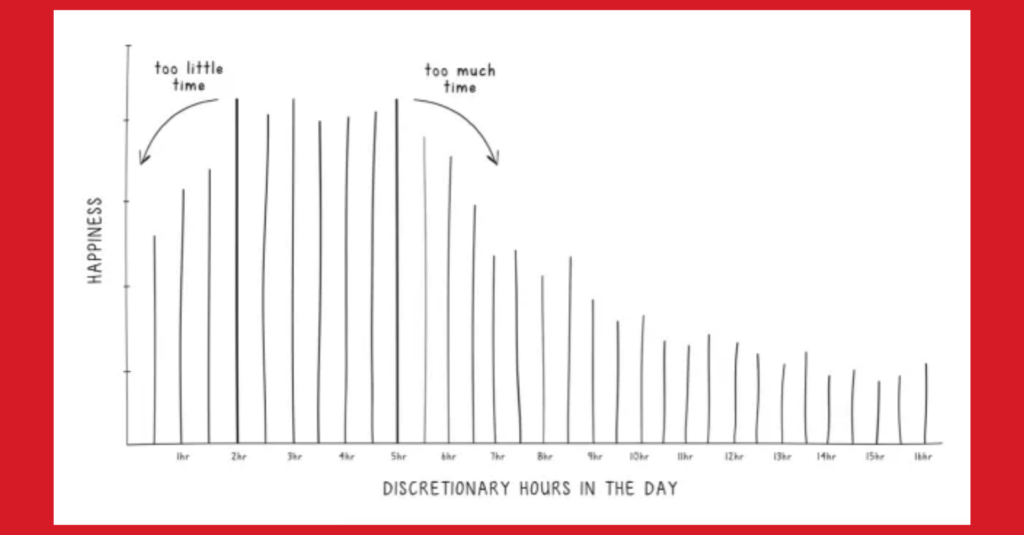18 December 2022 | People and Culture
More free time won’t make you happier
By
Time poverty is the feeling of having too much to do and not enough time to do it—aka the founder’s life.
As a founder, you have more on your plate than you have time. For many I talk to, the goal is to suffer, build something great, make a lot of money, and find happiness by being able to retire early and relax on a beach somewhere.
This plan for happiness doesn’t work out for anyone.
Since last week’s Workweek Unwrapped launched, I’ve been thinking deeply about how what I put on my calendar impacts my quality of life.
As the result of a series of fortunate events, I listened to Cassie Holmes give a keynote last week about the connection between time and happiness.
Cassie Holmes is a:
- author,
- coach,
- founder,
- happiness expert,
- professor at UCLA’s Anderson School of Management,
- and one of the most sought-after speakers in the field of Positive Psychology.
Holmes’ studies found that the happiest people focus more on their time and less on their bank accounts. In addition, the happiest people are most intentional about spending their time in fulfilling ways.
The biggest impact on our happiness resulted from what we did with the time we had.
Most enjoyed activities:
- Intimacy
- Socializing
- Praying/Meditating
- Exercising
Least enjoyed activities:
- Housework
- Community
- Working
She also found a connection with happiness and a balance between too much discretionary time and too little.

Having less than two hours of discretionary time daily reduces happiness due to stress. Having more than five hours of discretionary time each day reduced happiness because if created a sense of lacking purpose. (These times reflect averages on weekdays.)
Here are 3 things you can do to find more fulfillment with how you spend your team.
1) Remind yourself of your WHY
When you find yourself and your team getting burnout or complacent, make time to talk about the purpose of the work you are doing.
When the purpose is clear, you increase motivation, enjoyment, engagement, and satisfaction at work.
2) Invest in free time
If you are fortunate enough to have discretionary income, consider investing more of it in paying people to do the things you don’t like.
You’ll be able to support local business owners, the quality of work will increase as you hire a professional, and you’ll be able to spend more time doing the things you enjoy.
Outsource as much as possible.
3) The Times Left Exercise
It’s easy not to notice we are living in the good times until they are over, but this exercise will help you enjoy the things you enjoy most about your life while you are still able to.
Here are the steps:
First, select an activity you really enjoy. It can be anything. Maybe something you enjoy doing with someone close to you or something you’ve been waiting to make time for.
Next, calculate the total number of times you’ve done this activity in the past. (Estimating is okay, but take time to be as exact as possible.)
Then, figure out the total number of times you will be able to do this activity again in the future. Be sure to keep in mind how the availability for the activity will change as you and the person you do the activity with continue to get older. For example, my kids are eight and nine. If we go on two vacations each year, I probably only have 8 years of vacations before they decide going on vacations with dad is not on the top of their priority list.
So I have 2 vacations each year * an estimated 8 years for a total of 16 vacations remaining.
When we take the time to do the math, we quickly realize our remaining opportunities are much fewer than we may have otherwise thought.
Don’t look at these opportunities as part of your routine. Instead, make them valued rituals and be intentional about getting the most out of each opportunity.